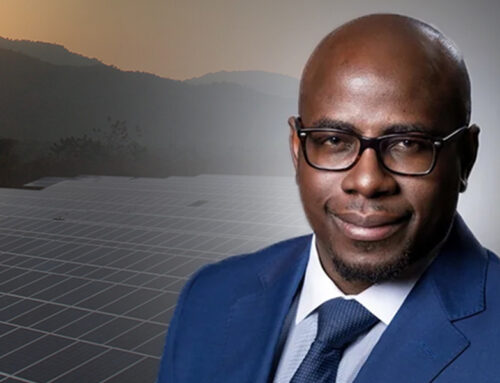Hawai‘i Tourism Authority under scrutiny amid allegations of hostile work environment
May 4, 2025
A state senator and some Hawai‘i Tourism Authority board members and former staff say the two main state agencies overseeing tourism failed to respond promptly to complaints about a hostile work environment — including alleged racist and sexist comments — that they said contributed to the recent resignations of five Native Hawaiian members of HTA’s leadership team.
Sen. Kurt Fevella (R, Ewa Beach) told the Honolulu Star-Advertiser Friday that he has asked state Attorney General Anne E. Lopez to investigate complaints about a hostile work environment at HTA that allegedly included “a chauvinistic attitude toward women and racist slurs toward Native Hawaiian workers” and “threats made to previous (HTA) leadership.”
In a written request sent to Lopez Thursday, Fevella said he was recently informed that female HTA board members had submitted complaints to her office regarding Isaac Choy, HTA’s vice president of finance and acting chief administrative officer.
Fevella told Lopez in his letter,“If Mr. Choy’s behavior, including his tone, demeaning manner, and communication style, has made female board members feel belittled and has created a hostile work environment, a thorough investigation must be conducted and cannot be swept under the rug.
“I am even more disturbed and outraged by reports that Mr. Choy made derogatory and dismissive comments, such as ‘dumb Hawaiians’ in the workplace. If true, these remarks are unacceptable and unlawful,” wrote Fevella, who is Native Hawaiian.
Choy said in an email to the Star-Advertiser on Friday, “I vehemently deny all these allegations. All board and committee meetings are recorded and available on the HTA website.”
Choy, a former state tax director and lawmaker, who was elected to five terms in the House of Representatives serving the Manoa district from 2008 through 2018, also told the Star-Advertiser on Thursday, “I am not a racist,” when asked in person for an interview.
Toni Schwartz, spokesperson for the Department of the Attorney General, said in an email Friday that the department “will not make statements on the existence or status of specific investigations or about possible pending cases.”
However, the Star-Advertiser has obtained a series of documents that illuminate what Fevella is asking Lopez to investigate in relation to HTA, which is administratively attached to the state Department of Business, Economic Development and Tourism.
>> Former interim HTA president and CEO Daniel Naho‘opi‘i, who is Native Hawaiian, sent a resignation letter on March 19 to the HTA board alleging that the work environment was “at times, outright hostile.”
>> A Nov. 25 incident report to Naho‘opi‘i from Tyler Gomes, administrator for the Council for Native Hawaiian Advancement’s Kilohana, alleged that Choy called Gomes and the rest of the CNHA team “dumb Hawaiians,” during an August 2023 meeting, and afterward embarked on a pattern of behavior that was “race-based in its inequity.”
>> HTA board member Stephanie Iona told the Star-Advertiser Friday that members of the HTA CEO Search Committee adjusted their vetting procedure so that the resumes of all applicants applying for the position went to the entire committee after the contractor running the executive search alleged that an HTA staff facilitator had expressed a concern about Polynesians.
Choy and DBEDT director James Kuane Tokioka both declined a Star-Advertiser request for an in-person interview and asked for questions in writing. The newspaper emailed them questions Thursday and Friday asking about the allegations.
Other than his “vehement” denial, Choy declined to respond to specific allegations.
Tokioka told the Star-Advertiser in an email Friday that CNHA officials were not present at the August 2023 meeting, but that he was there and heard Choy use derogatory language during the conversation about CNHA with other HTA staff members.
“Immediately following the incident, I told Mr. Choy that his comments were unacceptable and that he should not use language like that in the future,” Tokioka said.
Tokioka said he informed Choy during an Oct. 11, 2024, meeting that he was placing a written warning in his personnel file and would inform Naho‘opi‘i of the written warning.
“After this was received by Mr. Choy, he sent an apology on October 14, 2024, to the staff reinforcing that this type of incident would not happen again,” Tokioka said. “At that point, this incident was considered resolved.”
Tokioka said in an email to the Star-Advertiser’s query about other alleged incidents outside of the CNHA complaint, “You know these meeting are all recorded and if any of these comments were made at a board meeting it shouldn’t be too hard to find. I was never in a meeting that comments as you listed were made.”
But according to those who reported the other incidents, the alleged remarks were not made during public meetings.
In his emailed response to the newspaper, Tokioka said, “Some of the questions you asked, I am not able to answer or, I have no knowledge of the question or not enough information to answer the allegation.
“I also want you to know that as an employee of the State I’ve attended numerous harassment classes and when complaints are referred to my office from the 6 divisions and 12 attached agencies of DBEDT I take them very seriously.”
On Thursday, the Star-Advertiser contacted CNHA’s Gomes, who said that he waited to file a complaint against Choy because he initially thought the “dumb Hawaiians” comment was a one-off. He said that he reconsidered and reported the incident to Naho‘opi‘i after CNHA experienced a series of difficulties relating to its destination stewardship contract. The contract, which began in the summer of 2023, is worth $27.1 million for the initial 2-1/2 year term with an option for two one-year extensions.
Gomes said in the incident report, “As a former state executive, I’m well aware of the state’s required trainings through (Equal Employment Opportunity Commission). This comment made by Isaac is in clear violation of the state’s policies on hate speech.”
In the report, Gomes alleged that Choy imposed compliance requirements for CNHA’s contract that differed from what was expected of other vendors. Gomes also told the Star-Advertiser that Choy purportedly delayed the release of checks over a 400-day period to CNHA, despite the contract manager approving invoices.
In the report, Gomes said, “Based on what I believe is his underlying anti-Hawaiian sentiment, it is clear that this patterned behavior is race-based in its inequity.”
Tokioka said Friday in an email, “In August 2023, due to concerns with how CNHA/Kilohana Collective’s deliverables were being provided to the HTA at the beginning of the contract, I asked Mr. Choy or someone from his team to review HTA’s reporting guidelines with CNHA/Kilohana Collective to ensure that the deliverables provided were in alignment with contract requirements.”
Tokioka said it was brought to his attention in February that payments to CNHA/Kilohana Collective were past due for more than $3.5 million.
Tokioka added, “Upon review, the HTA program manager assigned to manage CNHA’s contract had not processed the payments, resulting in the outstanding balance. I replaced the HTA program manager and assigned Mr. Choy to step in.”
Gomes said Thursday that HTA’s payments to CNHA are now current and that since Tokioka intervened, CNHA’s “functioning relationship with Mr. Choy has been positive.”
Changing currents
Documents obtained by the Star-Advertiser indicate a shift away from the growing Native Hawaiian focus that emerged at HTA under John De Fries, the agency’sfirst Native Hawaiian president and CEO.
Naho‘opi‘i, who DeFries hired as his HTA chief administrative officer, became the second Native Hawaiian to serve in HTA’s top role. After DeFries resigned, Naho‘opi‘i was promoted to HTA interim president and CEO but resigned from the role on March 21 after 18 months.
Other recent resignations by Native Hawaiian staff have included Maka Casson-Fisher, HTA brand manager; ‘Iwalani Kaho‘ohanohano, HTA senior brand manger; Ilihia Gionson, HTA public affairs officer; and most recently Kalani Ka‘ana‘ana, HTA chief stewardship officer and interim public affairs officer, whose resignation was effective Friday.
Iona said, “The question we should be asking as a board is, ‘How could five top managers leave in less than seven months? Do those five managers have a common denominator?’ Yes, they are all Native Hawaiians.”
Iona, who is Native Hawaiian, said she is among the HTA board members who made complaints and called for an investigation. She said she first went to Naho‘opi‘i, then to DBEDT’s human resources, and then to the AG’s office.
“Until today, no response. What happens in the meantime? Maka leaves, Iwa leaves, Ilihia leaves, Daniel leaves and writes a letter and now Kalani.”
Naho‘opi‘i detailed a toxic work environment and a lack of support for the Native Hawaiian community in his resignation letter to the HTA board, which was obtained by the Star-Advertiser.
In the letter, Naho‘opi‘i expressed disappointment that “some legislators and leaders are not supportive of the strategic shift to a regenerative tourism model including efforts to ensure the commitment to the Native Hawaiian community (as stated in the Aloha ‘Aina Economic Futures signed on by the board).”
Tokioka said Naho‘opi‘i did not bring concerns about HTA shifting away from the regenerative tourism model to his attention before his departure.
DBEDT vs. HTA
In his letter, Naho‘opi‘i’ said some board members were advocating for board bylaws or legislation that “decreased the control and responsibility of the HTA CEO in supervision of its staff while increasing the powers of the board or DBEDT.”
Naho‘opi‘i told the Star-Advertiser on Saturday that a key reason he left HTA was that he was prevented from effectively addressing numerous complaints involving Choy, including: two formal complaints from HTA board members, two complaints from HTA contractors, one formal complaint from an HTA employee and multiple other informal employee complaints.
“I was facing a lot of resistance from (DBEDT) HR saying that I should just resolve it from meeting with him,” Naho‘opi‘i said. “I talked to Isaac directly, but nothing got resolved.
“When I tried to do the board complaints, (the deputy attorney general) said, ‘No, the board has to take care of their own board complaints,” he said.
Naho‘opi‘i said he felt threatened because Tokioka had tried to discipline him, unsuccessfully, after Naho‘opi‘i represented the HTA board’s position on a bill in 2024 that was not aligned with DBEDT’s position.
“Every time I tried to do something to discipline staff or even just talk about issues related to HTA, Jimmy would step in if things that I was doing did not align with Isaac or his desires,” he said. “There’s a long state process for disciplinary action.”
Fevella questioned why the HTA board, which included Tokioka, promoted Choy to acting chief administrative officer on April 16 while unresolved complaints remained.
Fevella said he plans to hold a news conference and sign-waving on Monday from 9 to 11 a.m. at the state Capitol calling to end racism and chauvinism at the HTA.
Caroline Anderson, who became interim HTA president and CEO upon Naho‘opi‘i’s departure, said in an email to the Star-Advertiser, “We aspire to be an organization informed by Native Hawaiian values and always strive to provide a workplace where our staff and partners feel safe, valued, and respected. A practiced culture of aloha, malama, ‘olu‘olu are necessary for our success. As this is a personnel matter, we cannot provide further details.”
Newly elected HTA board Chair Todd Apo told the Star-Advertiser, “The matter is in the Attorney General’s hands and we have to wait for direction from them. We need to make decisions based on that.”
Search
RECENT PRESS RELEASES
Related Post




